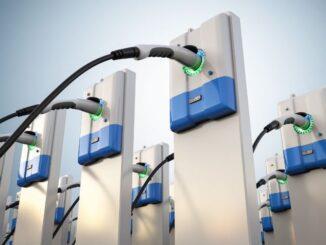
A labour government would ensure that the charging infrastructure required for the logistics industry’s transition to electric vehicles was widely available, according to its shadow business minister.
Bill Esterson MP shared his views on the challenges businesses are currently facing with costs and infrastructure accessibility at Logistics UK’s next generation van conference earlier this week.
He said: “Labour’s industrial strategy will create stability for logistics businesses and ensure the UK is self-sufficient in cheap, renewable electricity.
Read more
- Heavier trucks, biofuels, affordability and recharging infrastructure all on the agenda for decarbonisation minister
- Zero-emission HGV market “shackled” by lack of infrastructure and national plan, SMMT warns
- Autumn Statement: EVs to be taxed but industry welcomes continued infrastructure investment
“Labour will ensure that charging infrastructure is widely available, that depots can connect to the grid and that incentives are available so that it makes sense to transition to electric. We will be partners with industry to develop and implement the plans needed to meet the challenge of decarbonisation.”
Denise Beedell, senior policy manager at Logistics UK said van operators continued to face barriers with significant costs for increasing adequate power supplies and installing the required charging infrastructure at their depots: “They also need to have confidence that the public chargepoint network will be able to accommodate their electric vehicles,” she said.
“Bays at public electric vehicle charging points are often too small to accommodate commercial vehicles, or are unavailable because they are in use or are broken.
“The pace of the roll out of suitable public charging infrastructure must be accelerated and appropriate fiscal measures are put in place to support our industry in meeting decarbonise deadlines to ensure our sector can continue to deliver all that the economy requires.”













